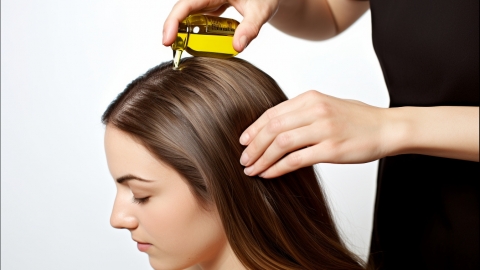How to deal with excessively oily hair
Excessive oil production in the hair may be caused by heredity, unhealthy lifestyle habits, seborrheic dermatitis, folliculitis, tinea capitis, and other factors. It can usually be treated through lifestyle adjustments, dietary improvements, use of oil-controlling shampoo, and medication. If symptoms persist or worsen, prompt medical attention is recommended. Detailed analysis is as follows:

1. Heredity: If parents or other close relatives have oily skin, an individual may naturally have highly active sebaceous glands, leading to excessive oil secretion on the scalp and oily hair. It is recommended to maintain scalp cleanliness, use oil-controlling shampoo, and avoid excessive scalp irritation.
2. Unhealthy lifestyle habits: Long-term late nights, insufficient sleep, excessive stress, and frequent hair washing may affect the body's metabolism and hormonal balance, resulting in oily hair. It is recommended to adjust sleep patterns, ensure sufficient sleep, avoid staying up late and overexertion, relax, and reduce the frequency of hair washing, ideally every 2 to 3 days.
3. Seborrheic dermatitis: Often associated with hormonal imbalances, this condition causes excessive oil production by the sebaceous glands, leading to increased scalp oil secretion and oily hair. Symptoms may include significant grayish-white dandruff, itching, and hair loss. Treatment under a doctor's guidance may involve medications such as tacrolimus ointment, pimecrolimus cream, and itraconazole capsules to inhibit sebum production and reduce inflammation.
4. Folliculitis: This inflammation caused by bacterial infection may lead to scalp itching or hair loss, as well as increased sebum production. Symptoms may include redness, swelling, and pain on the scalp. Treatment under medical advice may involve medications such as erythromycin ointment, mupirocin ointment, and cefuroxime axetil tablets to eliminate inflammation and reduce oil secretion.
5. Tinea capitis: A scalp condition caused by fungal infection, it may cause scalp itching or increased sebum production, along with symptoms such as red patches and scaling. Treatment under medical advice may involve oral terbinafine hydrochloride tablets, ketoconazole cream, and miconazole nitrate cream to eliminate the fungus and alleviate symptoms.
In daily life, maintaining a healthy lifestyle including a balanced diet, moderate exercise, regular hair and scalp cleansing, using mild shampoo, and avoiding excessive scalp irritation can help reduce oily hair production.











